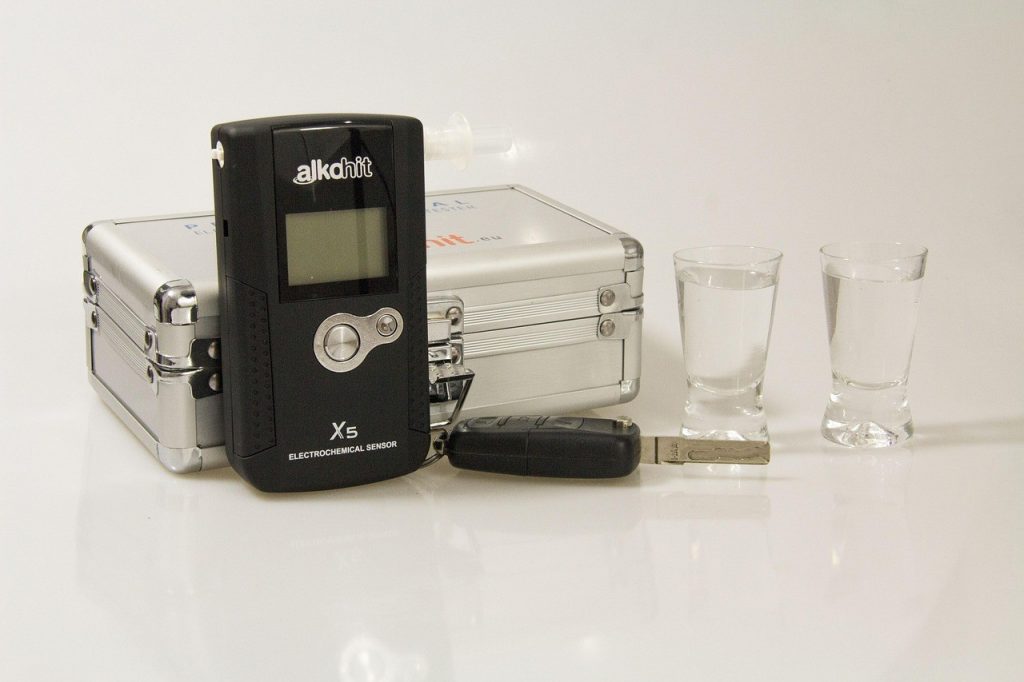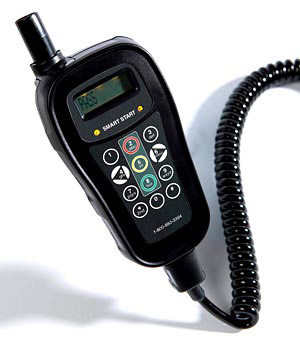Ignition Interlock Devices and BAIID – What You Need to Know
If you seek restoration of your driver’s license, you should know that the process is complicated. It is designed to make it hard to win. With the right information, you have a better chance of success.

Ignition Interlock Devices and License Restoration
A BAIID (Breath Alcohol Ignition Interlock Device) is an ignition interlock device installed in a motor vehicle to prevent a person from operating the vehicle while under the influence of alcohol. The primary purpose of a BAIID is to reduce drunk driving incidents and improve road safety.
After October 1, 1999, Michigan law requires that if a hearing officer grants a restricted license, it shall include that a BAIID ignition interlock device is installed in a vehicle the petitioner intends to drive. This restriction is also added to the petitioner’s master driving record. The Secretary of State will not issue a restricted license until a certificate that the ignition interlock has been installed in the automobile. Unless otherwise specified, the license restrictions are indefinite. Still, the interlock requirement will automatically expire one year after the Secretary of State issued the license or longer if there is a violation. If there is a need to drive a company vehicle, the ignition interlock must also be placed on that vehicle.
How does the BAIID Ignition Interlock Device work?
- Breath Testing: When a driver wants to start the vehicle, they must blow into the BAIID’s mouthpiece to provide a breath sample.
- Alcohol Detection: The BAIID analyzes the breath sample to determine the driver’s blood alcohol concentration (BAC). If the BAC is below the predetermined limit, usually set at 0.02% or 0.04%, the vehicle will start as usual. If the BAC exceeds the limit, the vehicle’s ignition will be locked and won’t start.
- Rolling Retests: To ensure the driver remains alcohol-free during the trip, BAIIDs often require periodic rolling retests while driving. The device will prompt the driver to take additional breath tests at random intervals. If the driver fails a retest or does not take it, the vehicle’s horn may honk, or the lights may flash as a warning, and the event will be recorded.
- Data Recording: BAIID devices typically record all breath test results, retests, and other relevant data. Authorities or the court can download and review this information during required monitoring appointments.
- Tamper Prevention: BAIIDs are designed to prevent tampering. They are often equipped with features like tamper-resistant seals and sensors to detect any attempts to bypass or manipulate the device.
Defending Against Interlock Violations and Penalties
Violations of the ignition interlock device are divided into “minor” and “major.” Minor violations result in a three-month extension of having the interlock device. Major violations result in a reinstatement of the revoked/denied status. Some examples of major violations include tampering with and removing the device, three minor violations within the monitoring period, a retest failure, and being charged with drunk driving. The ignition interlock providers will report to the Secretary of State and the driver. The petitioner must bring that documentation to the next hearing.

Scientific Limitations of the BAIID
Some studies and research articles raised concerns about the accuracy and reliability of BAIID (Breath Alcohol Ignition Interlock Device) systems. While BAIID devices are generally considered effective tools, some studies have identified potential limitations and factors impacting their scientific accuracy.
- False Positives and False Negatives: BAIID systems may occasionally produce false positive readings, indicating that a driver has alcohol in their system when they do not. Conversely, false negatives may occur when the device fails to detect alcohol when it is present. Factors such as mouth alcohol contamination, device calibration issues, or technical malfunctions can contribute to these inaccuracies.
- Mouth Alcohol Contamination: Studies have shown that substances such as mouthwash, breath fresheners, or certain foods and beverages can lead to mouth alcohol contamination. When present in the mouth during the breath test, these substances can artificially elevate the BAIID’s readings, potentially leading to false positives.
- Variability in Breath Sample Collection: Inconsistent or improper breath sample collection can impact the accuracy of BAIID results. Factors like the depth and duration of the breath sample can affect BAC measurements.
- Individual Differences: BAIID devices may not perform equally well for all individuals. Variations in lung capacity, lung function, and breath patterns can influence BAIID readings, potentially leading to differing results among users.
- Temperature and Environmental Factors: Extreme temperatures and environmental conditions may affect the accuracy of BAIID readings. Cold weather, in particular, has been identified as a factor that might lead to less reliable results.
- Technical Errors and Calibration: Like any electronic device, BAIIDs are subject to technical errors and require proper calibration to maintain accuracy. Failure to calibrate the device regularly or technical malfunctions can compromise the reliability of the results.
Should I hire an attorney for a BAIID violation hearing with the Michigan Secretary of State?
You are not required to hire a lawyer. Anyone facing a BAIID violation is free to represent themselves; however, if you are facing a BAIID violation hearing at the Michigan Secretary of State, hiring a lawyer to help you with the hearing is highly advisable. An experienced attorney familiar with Michigan’s OWI laws and BAIID regulations can be instrumental in navigating the complexities of the legal process. They can provide valuable guidance, build a strong defense, and advocate on your behalf during the hearing. A lawyer can review the evidence, challenge the accuracy of the BAIID readings, explore potential procedural errors, and ensure your rights are protected throughout the administrative proceedings with the DAAD. Facing a BAIID violation can have serious consequences, including additional penalties or extended restrictions, so having legal representation can significantly increase your chances of achieving a favorable outcome.

Driver’s License Restoration Attorney
Issues of driver’s license restoration and ignition interlock devices are not something a person should do on their own or with a low-end lawyer. There are limitations on how often a person can seek a license restoration or restriction. Therefore, it is essential to use every opportunity to its utmost. The Michigan driver’s license appeal attorneys with LEWIS & DICKSTEIN, P.L.L.C. are highly experienced. Our attorneys have vast experience handling all driver’s license issues across Michigan. Driver license appeal attorneys have a varying degree of knowledge of how the Secretary of State’s administrative process works. It is essential that you have the best Michigan driver’s license appeal attorneys represent you at the Secretary of State to get you back on the road. We offer a free consultation, and we are not afraid to win!
Call us today at (248) 263-6800 for a free consultation or complete an online Request for Assistance Form. We will contact you promptly and find a way to help you.













